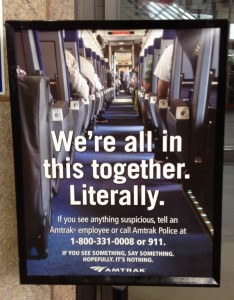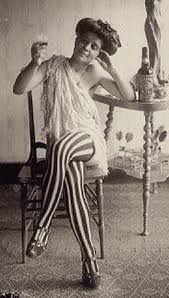“The semicolon sat there in my literary utensil drawer like a cherry pitter, theoretically functional, but fussy and unloved and probably destined for the yard-sale table.” A beautifully-written love-letter to the semicolon by Ben Dolnick, published in Monday’s New York Times.
http://opinionator.blogs.nytimes.com/2012/07/02/semicolons-a-love-story/
Semicolons: A Love Story
By BEN DOLNICK
Draft is a series about the art and craft of writing.
When I was a teenager, newly fixated on becoming a writer, I came across a piece of advice from Kurt Vonnegut that affected me like an ice cube down the back of my shirt.
“Do not use semicolons,” he said. “They are transvestite hermaphrodites representing absolutely nothing. All they do is show you’ve been to college.”
At the time I was less struck by the cranky, casual bigotry of the statement (a great deal of Vonnegut’s advice sounds as if it was rasped between grandfatherly coughing fits) than by the thrilling starkness of the prohibition. A writer was simply not to use semicolons. Ever.
At that point I’d written a number of not very good short stories over which I’d sprinkled semicolons (along with inapt adjectives and “symbolic” character names) like the wishful seasonings of an amateur cook. Now I would have, if it had been physically possible, scrubbed the accursed symbol from my keyboard and never thought about semicolons again, except to harrumph cruelly when I witnessed other, lesser writers succumbing to this particular form of misguidedness.
Advice from Vonnegut was not, to me, just any advice. To say that he was my literary hero doesn’t quite capture the intensity of the worship and obsession I heaped upon him. I wrote him letters that I can only pray he never saw. I read all of his books and then, once I’d finished, I started collecting editions of “Slaughterhouse Five” in other languages (none of which, it goes without saying, I could read a word of). I even began narrating my life to myself in his weary, gravelly voice. (Ben sat down to finish his history homework. What this meant, mostly, was learning how one group of apes butchered another group of apes. So it goes.)
Vonnegut’s dismissal of semicolons therefore struck me as more than a mere matter of style. This was, like his refusal to describe his war experience in heroic terms, a demonstration of virtue. To abjure semicolons was to declare oneself pure of heart, steely-eyed, sadly disillusioned. I pictured Vonnegut and Hemingway sitting together on a porch, squinting grimly out at the road, shaking their heads at what the literary world had come to. I wanted nothing more in life than to climb onto one of the empty rockers beside them.

Peter Arkle
My disdain for semicolons outlasted my devotion to Vonnegut. Well into college I avoided them, trusting in the keyboard’s adjacent, unpretentious comma and period to divvy up my thoughts. I imagined that, decades hence, if some bright-eyed teenager were to ask me for advice, I’d pass Vonnegut’s prohibition right along, minus the troublesome bit about transvestites and hermaphrodites. By now I’d come across Isaac Babel’s famous description of periods as irons capable of stabbing the heart. And I knew, of course, that commas were indispensable. The semicolon sat there in my literary utensil drawer like a cherry pitter, theoretically functional, but fussy and unloved and probably destined for the yard-sale table.
So it’s been with considerable surprise, these past few years, that I’ve found myself becoming something of a cherry-pitting maniac. This may just, as Vonnegut says, reflect the fact that I’ve now been to college, though honestly I can’t remember anyone’s expressing a single semicolon-related sentiment while I was there. Regardless, I’ve come to love the awkward things, and to depend on them for easing me through a complex thought.
I blame my grammatical fall on an unlikely corrupter: William James. For the past year or two I’ve had on my nightstand a fat Library of America collection of his writing, and it took me a while to realize that one of the things I was loving about it — one of the things that made me feel as if I was sitting beside a particularly intelligent, humane and excitable friend on a long trip in a horse-drawn carriage — was his use of semicolons. James’s paragraphs, as lucid and unpretentious as can be, are divided and subdivided, as intricately structured as the anatomical diagrams he includes in “Psychology: Briefer Course.” Semicolons, along with exclamation points and dashes and whole sackfuls of commas, are, for him, vital tools in keeping what he called the “stream of thought” from appearing to the reader as a wild torrent.
And once I’d seen him using semicolons this way, their pleasing possibilities became irresistible. I’d been finding myself increasingly flummoxed by the difficulty of capturing even a rough approximation of thought on the page, and it seemed absurd to leave such a handy tool unused out of obscure loyalty.
Many times a week I’d been experiencing a mental event like this: I’d be reading an article about a flood in Mexico, which would lead me to thinking about a wedding I once went to in Cancún, which would lead me to thinking about marriage, which would lead to gay marriage, which would lead to the presidential election, which would lead to swing states, which would lead to a fascinatingly terrible country song called “Swing” — and I’d be three songs into a Trace Adkins YouTube marathon before I’d glance back down at the newspaper on the table.
It’s in honoring this movement of mind, this tendency of thoughts to proliferate like yeast, that I find semicolons so useful. Their textbook function — to separate parts of a sentence “that need a more distinct break than a comma can signal, but that are too closely connected to be made into separate sentences” — has come to seem like a dryly beautiful little piece of psychological insight. No other piece of punctuation so compactly captures the way in which our thoughts are both liquid and solid, wave and particle.
And so, far from being pretentious, semicolons can be positively democratic. To use a semicolon properly can be an act of faith. It’s a way of saying to the reader, who is already holding one bag of groceries, here, I know it’s a lot, but can you take another? And then (in the case of William James) another? And another? And one more? Which sounds, of course, dreadful, and like just the sort of discourtesy a writer ought strenuously to avoid. But the truth is that there can be something wonderful in being festooned in carefully balanced bags; there’s a kind of exquisite tension, a feeling of delicious responsibility, in being so loaded up that you seem to have half a grocery store suspended from your body.
So yes, Kurt Vonnegut: simplicity, in grammar as in all things, is a virtue, not to be sneezed at. But I can’t agree that semicolons represent absolutely nothing; they represent, for me anyway, the pleasure in discovering that no piece of writing advice, however stark, however beloved its deliverer, should ever be adopted mindlessly.
Draft welcomes submissions at draft@nytimes.com.





 Peter Arkle
Peter Arkle






